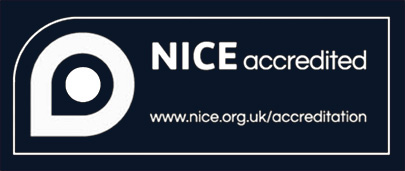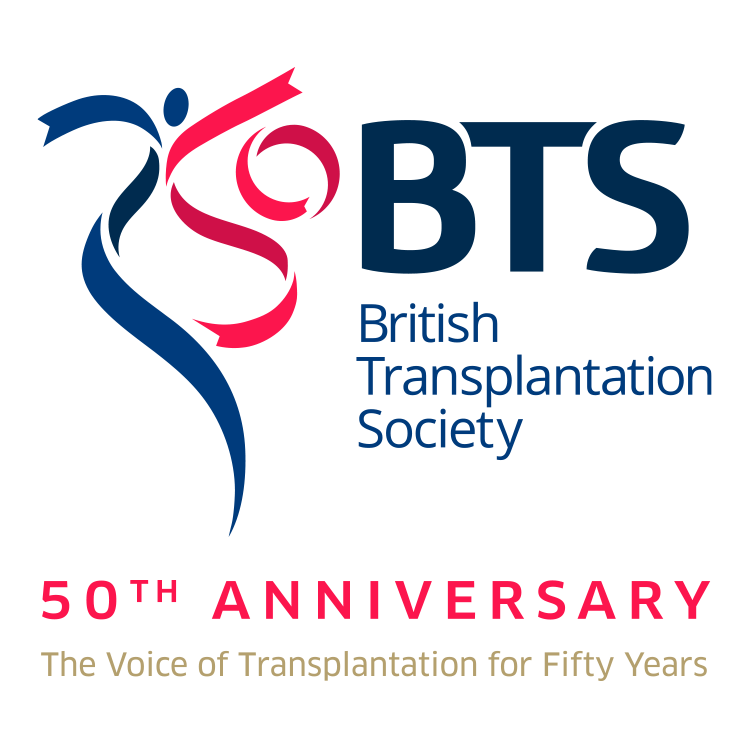Current UK Transplant Trials
Use our interactive list of current Transplant Trials being conducted in the UK to find out more information from Principal Investigators through to Target Recruitment.
Choose a trial below to learn more
Pre-ImplantationTrial of Histopathology In renal Allografts (PITHIA)
Principle Investigator (PI)
Mr Gavin Pettigrew
Status
Paused due to COVID-19
Open to new sites?
No (all renal transplant centres are involved already)
Website
www.pithia.org.uk
Twitter
@PITHIA_trial
Plasma-Lyte Usage and assessment of kidney Transplant Outcomes in children (PLUTO)
Principle Investigator (PI)
Dr Wesley Hayes
Status
Open
Open to new sites?
Yes
Website
www.pluto-study.co.uk
Twitter
@PLUTOstudy
SurveillanceOf arterioveNous fistulAe using ultRasound (SONAR)
Principle Investigator (PI)
Mr Gavin Pettigrew
Status
Recruitment completed, data analysis underway
Open to new sites?
No (Please contact us if interested in a second, related study)
Website
www.sonartrial.org.uk
Twitter
@SONAR_trial
COVID-Transplant
Chief Investigator
Hermien Hartog
Current study status
Active
Open to further sites
No
Study synopsis
Patient-facing survey to assess the impact, feasibility and outcomes of shielding for COVID-19 in (immunosuppressed) solid organ transplant recipients
Link to media
https://www.rcseng.ac.uk/coronavirus/rcs-covid-research-group/
Global impact of COVID on Surgeons and Team Members (Global COST) Study
.
You can help improve working conditions around the world and be entered into a prize draw to win a £200 Amazon voucher. If you collaborate by sharing this information you could also gain authorship on a peer-reviewed publication.
If you are a surgeon (trainee or consultant), surgical assistant, scrub/theatre nurse or operating department practitioner, we would like to hear from you.
This simple 10 minute survey (link below) will help us understand the impact of the COVID pandemic on the mental physical, financial and family well-being of theatre staff and the support provided by institutions.
If you are also interested in collaborating, please email coststudy@globalsurgicalsurveys.org for a specialised survey link. if you are able to get 50 relevant participants to complete the form using your link you will gain authorship on the resulting publication.
.
From Potential Donor to Actual Donation. How does socioeconomic deprivation affect the recruitment and progression of living kidney donors? A quantitative-qualitative mixed methods observational study.
Principle investigator (PI)
Dr Phillippa (Pippa) Bailey
UK centres involved
University of Bristol and North Bristol NHS Trust
Newcastle upon Tyne Hospitals NHS Foundation Trust
Cambridge University Hospitals NHS Foundation Trust
University Hospitals of North Midlands NHS Trust
Lancashire Teaching Hospitals NHS Foundation Trust
Cardiff and Vale University Health Board
Abertawe Bro Morgannwg University Health Board
Trial registration ID/URL
N/A
Organ
Kidney / Living Donors
Study design
Four phases:
1. Systematic review
2. Qualitative interview study
3. Pilot questionnaire-based observational case-control study
4. Prospective multicentre observational cohort study
Target recruitment (n)
Phase 2: Target recruitment determined by theme saturation
Phase 3: Response rate primary outcome for pilot
Phase 4: 850
Status
Closed to recruitment
Brief summary of the study
Live-donor kidney transplantation offers the best treatment for most people with renal failure. Socioeconomically deprived individuals in the UK are less likely to receive a live-donor kidney transplant (LDKT) than less deprived people, despite being more likely to develop renal failure. The reasons for this are not well understood. This work aims to understand how socioeconomic deprivation (SED) might affect the recruitment of potential living kidney donors by transplant candidates, and the progression of potential donors through to donation.
A quantitative-qualitative mixed methods approach has been taken. A qualitative study of in-depth semi-structured interviews with renal patients aims to identify patient-experienced potential barriers to live-donor kidney transplantation. A questionnaire-based case-control study has been designed to investigate quantitatively the themes arising from the qualitative study, and to examine potential intermediaries in the causal pathway between SED and reduced likelihood of a LDKT. Finally, a multi-centre prospective cohort study will examine whether after successful donor recruitment deprivation is still associated with a reduced likelihood of a LDKT, and whether SED is associated with potential donor progression.
Outsmart. A randomized controlled clinical trial to determine if a combined screening/treatment programme can prevent premature failure of renal transplants due to chronic rejection in patients with HLA antibodies.
Principle investigator (PI)
Anthony Dorling
Contact
Dr Leanne Gardner
Leanne.gardner@kcl.ac.uk
UK Centres Involved
St. James’ University Hospital
Royal London
Guy’s Hospital
Manchester Royal Infirmary
Queen Elizabeth Hospital Birmingham
King’s College Hospital
York Hospital
University Hospital Coventry
Royal Preston Hospital
Salford Royal Hospital
Bradford Royal Infirmary
Royal Free
St. Helier
Trial registration ID/URL
ISRCTN – 46157828 / www.isrctn.com/ISRCTN46157828
Organ
Kidney
Study design
RCT
Target recruitment (n)
2357
Status
Recruiting
Brief summary of the study
Treatment of kidney disease accounts for a significant proportion of NHS spending. Although transplantation is the best treatment for kidney failure, most transplants do not survive for the recipient’s natural lifespan, but instead fail after 1012 years. Damage by the immune system, called ‘chronic rejection’ accounts for 50% of failing transplants and it is now possible to identify patients at risk by screening for ‘HLA antibodies’ in the blood. This application is to test a screening and treatment protocol for antibodies in a randomised controlled trial. Those with antibodies will be randomised into biomarker led (BLC) or standard care (SC) groups. In the former, test results are revealed and recruits will have their antirejection drugs changed to a regime of prednisone, tacrolimus and MMF, each already licensed for use in transplant recipients.
We have evidence that this regime is effective at preventing graft dysfunction and expect this to feed through to improvements in survival. In the SC group, screening results are double blinded and recruits will remain on their current therapies. In those without antibodies, recruits will be randomised to either blinded or unblinded screening and remain on standard treatment. Testing will continue every 8 months; recruits in the unblinded screening group will move into the BLC group if they become antibody positive. The primary outcome is kidney failure rates within 3 years of randomisation in HLA antibody+ recruits, predicted to be approximately 20% in the SC but <10% in the BLC groups. Secondary outcomes include rates of deterioration, the incidence of infections, cancers and diabetes, an analysis of the role of nonadherence with medication, and a scientific study to identify new biomarkers associated with outcomes. A cost analysis will confirm whether the screening programme and treatment protocol can save money by keeping kidney transplants functioning for longer.
Acknowledgement
This project is funded by the Efficacy and Mechanism Evaluation (EME) Programme, an MRC and NIHR partnership.
Testing the efficacy of MR imaging for assessment of renal fibrosis.
Principle investigator (PI)
Neil Sheerin
Contact
Lynn.d. Langhorne
lynnd.langhorne@nhs.net
UK centres involved
Newcastle upon Tyne
Trial registration ID/URL
N/A
Organ
Kidney
Study design
Observational
Target recruitment (n)
36
Status
Recruiting
Brief summary of the study
Contrast enhanced MRI imaging will be performed in 3 patient groups (n=12 per group)
1. Patients with CKD stage 3 who have undergone a renal biopsy
2. Patients with early stage diabetic nephropathy (CKD stage 1-2) with proteinuria
3. Age and sex matched controls
The aim of the study is correlate imaging parameters with histological changes and renal function.
A Multinational Randomised Controlled Trial to Compare the Efficacy of Normothermic Machine Perfusion with Static Cold Storage in Human Liver Transplantation.
Principle investigator (PI)
Prof Peter J Friend
Contact
David Nasralla
david.nasralla@nds.ox.ac.uk
UK centres involved
Addenbrooke’s Hospital, Cambridge
King’s College Hospital, London
Queen Elizabeth Hospital, Birmingham
Royal Free Hospital, London
Trial registration ID/URL
ISRCTN 39731134
Organ
Liver
Study design
RCT
Target recruitment (n)
220 transplanted livers
Status
Closed to recruitment
Brief summary of the study
This is a randomised controlled trial comparing the current standard method for preserving a liver, static cold storage (SCS), with a new technique called normothermic machine perfusion (NMP). NMP preserves a liver by perfusing it with oxygenated blood, medications and nutrients at 37oC. This maintains the organ in a functioning physiological state and so may be able to: i) reverse damage that occurs during the donation process ii) increase preservation times iii) enable an assessment of organ viability. It is hoped that this will improve outcomes after transplantation.
The trial is sponsored by the University of Oxford and funded by the European Union 7th Framework Programme through the Consortium for Organ Preservation in Europe. All DBD and Maastricht category III DCD donors were eligible for inclusion provided the donor was over 16 years of age and there was no intention to split the organ. Recipients had to be adults receiving a liver only transplant who did not have acute/fulminant liver failure. Recruitment was taking place in seven European liver transplant units with 220 transplants required to power the primary endpoint – peak AST in the first seven days. Secondary endpoints include organ utilisation, post-reperfusion syndrome, early allograft dysfunction (EAD), graft and patient survival and evidence of ischaemic cholangiopathy on MRCP at six months.
Recruitment started in June 2014 and was completed in March 2016. Data analysis is now on-going.
A multicentre randomised controlled study of machine perfusion on cardiac-death donor kidneys.
Principle Investigator (PI)
C Watson
Contact
cjew2@cam.ac.uk
UK Centres Involved
Cambridge, Leeds, Glasgow and Edinburgh
Trial Registration ID/URL
Organ
Kidney
Study design
RCT
Target Recruitment (n)
Sequential analysis
Status
Closed to recruitment
Brief summary of the study
Hypothermic non-oxygenated machine perfusion at donor hospital vs cold storage in DCD kidney transplantation. Recruitment closed.
Are prophylactic antibiotics necessary before laparoscopic living kidney donation? A double blind, randomised, controlled trial (POWAR)
Principle investigator (PI)
Chief Investigator- Professor Nizam Mamode
Contact
Raphael Uwechue
Raphael.uwechue@gstt.nhs.uk
UK Centres Involved
Guy’s and St Thomas’ NHS Foundation Trust
Central Manchester Foundation Trust
Plymouth Hospitals NHS Trust
Cardiff & Vale Hospital
St Georges Hospital
Trial Registration ID/URL
EudraCT number- 2012-000942-36
Organ
Kidney Donor
Study design
RCT
Target recruitment (n)
284
Status
closed to recruitment
Brief summary of the study
A study assessing whether prophylactic antibiotics are beneficial prior to laparoscopic donor nephrectomy, involving randomisation between a single dose of antibiotic at induction of anaesthesia, and a placebo, in a double-blind fashion.
The primary outcome measure will be a composite endpoint of any infection; this will include surgical site infections as well as urinary tract, respiratory and any other infections, within 30 days of surgery.
Secondary endpoints will include ultrasonic evidence of wound healing, length of hospital stay, readmission rates, antibiotic associated side effects (including diarrhoea and allergic reactions), return to work and normal activities, quality of life and relative costs.
ReMIND- A randomized trial of Rituximab in induction therapy for living donor renal transplantation
Principle investigator (PI)
Chief Investigator- Professor Nizam Mamode
Contact
Raphael Uwechue
Raphael.uwechue@gstt.nhs.uk
UK centres involved
Guy’s and St Thomas’ NHS Foundation Trust
University Hospitals’ Birmingham
East Kent Hospitals University NHS Foundation trust
Queen Elizabeth University Hospital Glasgow
Kings College Hospital
Central Manchester Foundation Trust
Plymouth Hospitals NHS Trust
Sheffield Teaching Hospital
Trial registration ID/URL
Eudra CT number- 2009-017066-23
Organ
Kidney
Study Design
RCT
Target Recruitment (n)
612
Status
Recruitment on hold
Brief summary of the study
The ReMIND trial is a Phase IV randomised, open label, controlled trial testing the hypothesis that Rituximab allows minimisation of maintenance immunosuppression, and is testing for equivalence in renal function using a regimen including low level tacrolimus and early steroid withdrawal.
The trial compares two treatment regimens in living donor renal transplantation:
Rituximab plus standard care regimen (basiliximab, MMF, low dose tacrolimus) and 1 week of steroid therapy
Versus
Current standard care regimen of basiliximab, MMF, low dose tacrolimus and continued steroid therapy.
T and B cell subsets and responses to antigen stimulation in both groups of patients will also be studied.
Unspecified kidney donation: Barriers to implementation and delivery
Principle Investigator (PI)
Chief Investigator- Professor Mamode
Contact
Rebecca Gare
Rebecca.gare@gstt.nhs.uk
UK centres involved
Guy’s & 23 centres across the UK as PIC sites
Trial registration ID/URL
RQ1- IRAS- 170483
RQ2 – ISRCTN- 23895878
Organ
Unspecified Kidney Donor
Study design
Mixed methods cohort study
Target recruitment (n)
RQ1- 60
RQ2- 1085
Status
recruiting
Brief summary of the study
This study aims to provide a comprehensive assessment of the unspecified donor programme in the UK from the perspective of both donors and transplant professionals. It aims to identify the reasons for variations in practice, ascertain barriers to UKD and assess the economic implications of unspecified donation.
The study will contain three sub-studies aiming to answer three research questions (RQ1 – RQ3) over a period of 5 years:
Professionals’ Perspective: “Is there variation in transplant professionals’ practice and attitudes, which is preventing some unspecified living kidney donations?” (RQ1)
Kidney Donor’s perspective: “Are psychosocial and physical outcomes after unspecified donation equivalent to those after specified donation?” (RQ2)
Economic aspects of donation: “What is the economic benefit from unspecified donation?” (RQ3)
RQ1 will be achieved by carrying out focus groups, interviews and questionnaire surveys with renal transplant professionals from all 23 UK centres.
RQ2 will be achieved by carrying out focus groups, structured interviews and a questionnaire survey. The study population will consist of all those individuals approaching a transplant centre with an interest in becoming an unspecified donor, irrespective of whether they donate or not. Potential specified donors will be used as the control population.
RQ3 will be achieved using the Client Service Receipt Inventory (CSRI) (13) which will be customised to reflect the healthcare services used in kidney donation.

![]()





